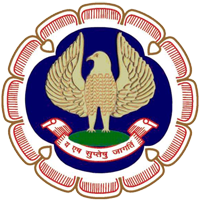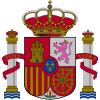
An accountant is a practitioner of accounting or accountancy. Accountants who have demonstrated competency through their professional associations' certification exams are certified to use titles such as Chartered Accountant, Chartered Certified Accountant or Certified Public Accountant, or Registered Public Accountant. Such professionals are granted certain responsibilities by statute, such as the ability to certify an organization's financial statements, and may be held liable for professional misconduct. Non-qualified accountants may be employed by a qualified accountant, or may work independently without statutory privileges and obligations.

An audit is an "independent examination of financial information of any entity, whether profit oriented or not, irrespective of its size or legal form when such an examination is conducted with a view to express an opinion thereon.” Auditing also attempts to ensure that the books of accounts are properly maintained by the concern as required by law. Auditors consider the propositions before them, obtain evidence, and evaluate the propositions in their auditing report.

The National Audit Office (NAO) is an independent Parliamentary body in the United Kingdom which is responsible for auditing central government departments, government agencies and non-departmental public bodies. The NAO also carries out value for money (VFM) audits into the administration of public policy.

The Court of Audit is the national French administrative court charged with conducting financial and legislative audits of most public institutions and some private institutions, including the central Government, national public corporations, social security agencies, and public services. The Court is essentially a cross between a court of exchequer, comptroller general's office, and auditor general's office in common-law countries.

In France, career judges are considered civil servants exercising one of the sovereign powers of the state, so French citizens are eligible for judgeship, but not citizens of the other EU countries. France's independent court system enjoys special statutory protection from the executive branch. Procedures for the appointment, promotion, and removal of judges vary depending on whether it is for the ordinary or administrative stream. Judicial appointments in the judicial stream must be approved by a special panel, the High Council of the Judiciary. Once appointed, career judges serve for life and cannot be removed without specific disciplinary proceedings conducted before the Council with due process.

An external auditor performs an audit, in accordance with specific laws or rules, of the financial statements of a company, government entity, other legal entity, or organization, and is independent of the entity being audited. Users of these entities' financial information, such as investors, government agencies, and the general public, rely on the external auditor to present an unbiased and independent audit report.

The South African Institute of Chartered Accountants (SAICA), South Africa’s pre-eminent accountancy body, is widely recognised as one of the world’s leading accounting institutes. The institute provides a wide range of support services to more than 48 000 members and associates who are chartered accountants, as well as associate general accountants and accounting technicians.
The Public Company Accounting Oversight Board (PCAOB) is a nonprofit corporation created by the Sarbanes–Oxley Act of 2002 to oversee the audits of public companies and other issuers in order to protect the interests of investors and further the public interest in the preparation of informative, accurate and independent audit reports. The PCAOB also oversees the audits of broker-dealers, including compliance reports filed pursuant to federal securities laws, to promote investor protection. All PCAOB rules and standards must be approved by the U.S. Securities and Exchange Commission (SEC).

The Institute of Chartered Accountants of India (ICAI) is the World's second largest professional accounting body and largest professional accounting body of India under the ownership of Ministry of Corporate Affairs, Government of India. It was established on 1 July 1949 as a statutory body under the Chartered Accountants Act, 1949 enacted by the Parliament for regulating the profession of Chartered Accountancy in India.

In Greece, the Hellenic Court of Audit is The Supreme Audit Institution of the Hellenic Republic, auditing the use of public funds in Greece according to the principles of legality, regularity and sound financial management. Synedrio is also the Supreme Financial Court, one of the three Supreme Courts of Justice, grounded on the Constitution, provides for its jurisdictional, advisory and auditing competences.

International Standards on Auditing (ISA) are professional standards for the auditing of financial information. These standards are issued by the International Federation of Accountants (IFAC) through the International Auditing and Assurance Standards Board (IAASB). According to Olung M, ISA guides the auditor to add value to the assignment hence building confidence of investors.

The Judiciary of Portugal is a system of courts that together constitute one of the four organs of Sovereignty as defined by the Portuguese Constitution. The courts are independent from the other three Portuguese organs of Sovereignty.
The Institute of Chartered Accountants of Nigeria (ICAN) is a professional accountancy body in Nigeria. It is one of the two professional accountancy associations with regulatory authority in Nigeria, the other being the Association of National Accountants of Nigeria (ANAN). The relationship between the two organizations has been tense. In 2007 ICAN attempted to have the bill establishing ANAN declared void.

The International Organization of Supreme Audit Institutions (INTOSAI) is an intergovernmental organization whose members are supreme audit institutions. Nearly every supreme audit institution in the world is a member of INTOSAI. Depending on the type of system used in their home country, the members of INTOSAI may be variously titled the Chief Financial Controller, the Office of the Comptroller General, the Office of the Auditor General, the Court of Accounts, or the Board of Audit.
In Bangladesh, the profession of accountancy developed during the British colonial period. The basic requirements for financial reporting by all companies in Bangladesh are provided by the Companies Act of 1994. Today, it is represented by two professional bodies, the Institute of Cost & Management Accountants of Bangladesh (ICMAB) and the Institute of Chartered Accountants of Bangladesh (ICAB).
A supreme audit institution is an independent national-level institution which conducts audits of government activities. Most supreme audit institutions are established in their country's constitution, and their mandate is further refined in national legislation. Supreme audit institutions play an important role in providing oversight and accountability in a country by monitoring the use of public funds and reviewing the quality and accuracy of government financial reporting. They also contribute to anti-corruption efforts. Depending on the country, a supreme audit institution may be called a court of audit, auditor-general or the board of audit. Nearly every supreme audit institution in the world is a member of the International Organization of Supreme Audit Institutions, which works to establish and disseminate international standards and good practices.

The National Board of Accountants and Auditors (NBAA) is an accounting professional and regulatory body operating under the Ministry of Finance and Economic Affairs, the sole body to certify accountants in Tanzania. It began operating on 15 January 1973.

The Office of the Comptroller and Auditor General of Bangladesh (C&AG) is the Supreme Audit Institution (SAI) of the country. Like the SAIs in many other countries across the world the institution is established by the Constitution of Bangladesh. This institute is responsible for maintaining accounts of the republic and audits all receipts and expenditure of the Government of Bangladesh, including those of bodies and authorities substantially financed by the government. The reports of the CAG are discussed by the Public Accounts Committee, which is a standing committee in the Parliament of Bangladesh.
The Comptroller and Auditor General (C&AG) is the constitutional officer responsible for public audit in Ireland. The Office of the Comptroller and Auditor General is the public audit body for the Republic of Ireland and is headed by the C&AG.

The Superior Auditor of the Federation is the supreme audit institution of Mexico. A technical agency of the Chamber of Deputies, it is empowered to conduct external audits of federal, state and local governments and agencies. The ASF is a member of the International Organization of Supreme Audit Institutions.













